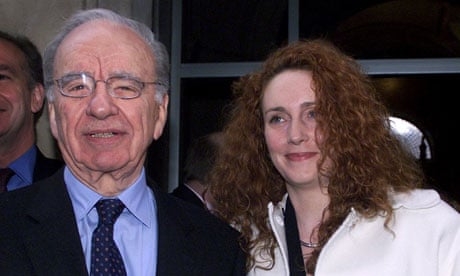James Murdoch may have made the official announcement but his father, Rupert, is almost certainly behind the decision to axe the News of the World. Bold, ruthless and imaginative, the decision has his special hallmark: in a crisis, don't let things drift but do what your opponents least expect and thus wrongfoot them. That was how he killed the Fleet Street unions in 1986, luring them into a strike over job cuts and then, overnight, spiriting his papers away to a new print site at Wapping with the latest technology and new, secretly trained printers. None of his papers missed an issue.
Nor, I'd wager, will a single Sunday pass without a Murdoch tabloid appearing on the streets. After the NoW's final issue this weekend – which will contain no commercial advertising and which will, we are told, devote its circulation revenues solely to good causes – expect a Sun on Sunday to appear the following week. Several other newspaper groups in recent years have, at least partially, combined daily and Sunday staff into a seven-day operation. The luxury of an entirely separate Sunday operation is one that few media companies can now afford. Murdoch's accountants and business managers will be jumping for joy at the resulting "efficiencies", conveniently clothed as an act of penance and restitution.
Will the move rescue Murdoch's reputation and that of his company? Not all his bold strokes succeed. After the flight to Wapping, he offered the unions the use of the obsolete hot-metal printing presses in the abandoned premises to bring out their own newspaper. The offer was denounced as cynical and instantly rejected; Wapping remained under siege from angry printers for many more months. The NoW decision may well get a similar response. True, the advertisers' boycott was always of dubious effectiveness – many were simply deferring their spending or shifting it to other Murdoch titles – and they will probably take space in a Sun on Sunday. But the victims of phone hacking may be less forgiving, and so may the wider public. It will be noted that many, probably most, of the journalists and other staff who will now lose their jobs on the NoW had nothing to do with phone hacking or other criminal activity.
However, senior News Corporation executives who, wilfully or otherwise, turned a blind eye both to the original offences and to the subsequent cover-up will most likely keep their jobs. Murdoch, it seems, will do almost anything to save Rebekah Brooks, the chief executive and editor of the NoW at the time of at least one hacking scandal, because he likes employees who owe almost everything to him and who also remain unquestioningly loyal.
The NoW brand was poisoned, and probably beyond revival. Shutting it down, if only temporarily (Murdoch will, of course, retain the title), was surely a smart business move. What remains to be seen is whether the poison has infected the rest of Murdoch's media empire.

